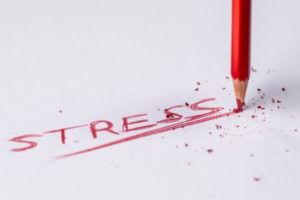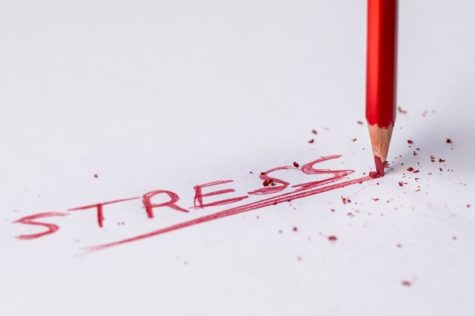NEW YORK — When people are under stress, they pick up on every danger, both real and imagined, right? Wrong. According to research from New York University, people have less flexibility to adjust to changing threats when they are preoccupied with a stressful situation.
“Stress does not always increase perceptions of danger in the environment, as is often assumed,” says Candace Raio, the study’s lead author, in a release.

Researchers say that our ability to anticipate threats around us is necessary to survival, but it is just as vital to be able to adjust our responses when new threats come into our environment –whether that is an out-of-control cyclist or a stranger following us to our car.
The authors carried out Pavlovian-type experiments to test threat responses to changing threats. Participants were asked to view certain images on a computer screen. They felt a mild electric wrist-shock while viewing some of the images (“threat cue”), but no shock with other images (“safe cue”).
The next day, half of the participants — the “stress group” — were asked to put their arm in ice-water for several minutes. This raised two stress hormones, alpha-amylase and cortisol, in the participants.
All participants then watched the same images on the computer, as before. This time, however, the cues were reversed. The former “threat cue” images were no longer paired with a shock; instead the “safe cue” images were paired with a shock. While the participants were looking at the images, the researchers were measuring their physiological responses to see how they anticipated each image outcome.
Researchers found that on the second day, the stress group was less willing than the control group to change how they responded to threats — those previously “safe cue” images that now came with “threat cue” shocks.
They concluded that stress is a factor in reducing our ability to adjust to changing threats. Participants in the stress group had lowered physiological responses to new threat cues, meaning they were not able to alter their perception of something formerly considered safe to currently being a danger.
Researchers next took these results and tried them on a computational learning model. They found that stress creates a learning deficit or slow-down in responses. People under stress lose their ability to truly pay attention and make the associations that would allow them to alter their response to changing cues.
“Our study shows that when we are under stress, we pay less attention to changes in the environment, potentially putting us at increased risk for ignoring new sources of threat. As a result, stress can reduce the flexibility of our responses to threats by impairing how well we track and update predictions of potentially dangerous circumstances,” Raio says.
The research was published in the journal Proceedings of the National Academy of Sciences.

Comments
Comments are closed.